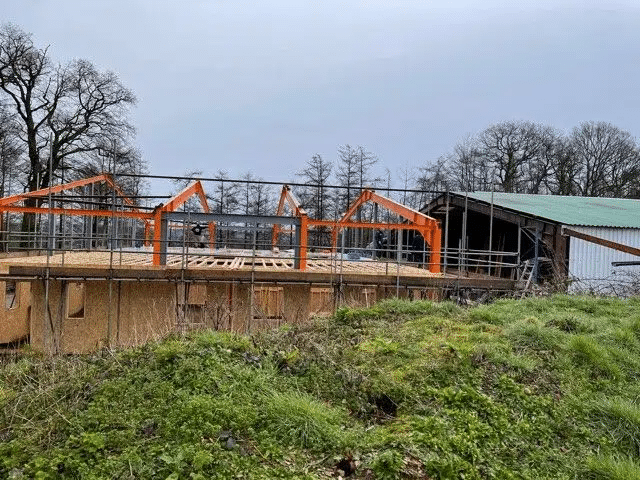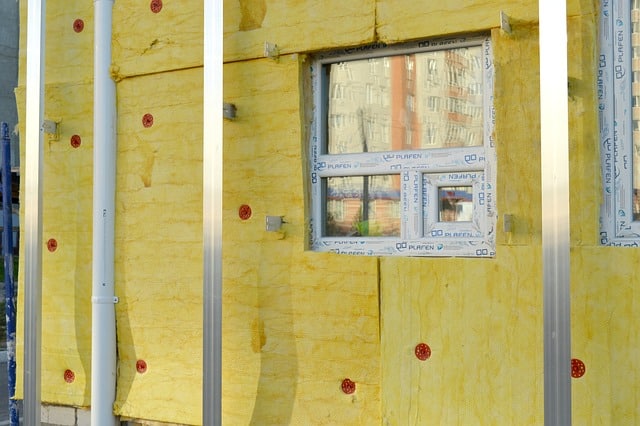In the ever-evolving world of construction, innovative materials and techniques are continuously shaping the way we build homes and structures. One such groundbreaking method that has been gaining prominence in recent years is ICF construction, or Insulated Concrete Form construction. In this blog, we will delve into the world of ICF construction, exploring what it is, what ICF blocks are, their costs, their benefits and finance options for property developers.
What Is ICF Construction?
ICF construction is a modern, eco-friendly building technique that combines the strength and durability of concrete with the energy efficiency of insulation. It involves the use of ICF blocks or forms to create the walls of a structure. These interlocking forms are stacked on site, reinforced with steel, and then filled with concrete, creating a solid and well-insulated concrete wall.
What Are ICF Blocks?
ICF blocks, or Insulated Concrete Forms, are the building blocks of ICF construction. They are typically made from expanded polystyrene (EPS) foam and come in interlocking panels or blocks, resembling large Lego pieces. The blocks are hollow to allow for concrete to be poured in to form a solid wall. These polystyrene building blocks are designed to be easy to stack and align, allowing for quick and efficient construction.
How Much Do ICF Blocks Cost?
The cost of ICF blocks can vary depending on factors such as thickness, brand, and location. On average, ICF blocks may cost 15-20% more upfront compared to traditional building materials like wood or concrete blocks. However, ICF blocks can knock two-four months of construction time off a building project which can create savings in labour costs and finance terms. There are also the longer-term benefits in terms of energy savings and durability which can outweigh the initial investment. A rough estimate can average £25-£35 per m2.

Source: checkatrade.com
What Are Fox Blocks?
Fox Blocks are a well-known brand of ICF blocks in the construction industry. They offer a range of ICF products designed to meet various construction needs. Fox Blocks are known for their ease of use, energy efficiency, and durability, making them a popular choice among builders and contractors.
What Are ICF Blocks Made Of?
ICF blocks are typically made of EPS foam, which is a type of polystyrene foam known for its excellent insulation properties. Space is left in the middle for a concrete wall to be poured and set. Some brands may incorporate recycled materials into their ICF blocks, making them more sustainable and eco-friendly.
Are ICF Blocks Toxic?
ICF blocks themselves are not toxic. They are made from EPS foam, which is generally safe for construction use. However, it’s essential to ensure that the materials used in the ICF blocks, such as the foam and concrete, meet local building codes and safety standards.
Are Insulated Concrete Forms Worth It?
ICF construction offers several compelling advantages that make it worth considering for your construction project. These benefits include reduced construction time, superior energy efficiency, increased durability, excellent soundproofing, and reduced maintenance costs over time. While the initial investment may be higher, the long-term savings and comfort make ICF construction a wise choice for those looking to build sustainable and resilient homes.
For property developers, ICF construction can knock months off a building project due to the fast assembly time. This can create savings in labour costs and reduce finance terms and therefore interest payments, which may offset the higher initial costs. This also allows projects to be completed at pace, allowing developers to move onto the next project faster.
If you are a property developer with an ICF construction project in the South East of England, get in touch with us about a property development loan.
Property Development Loans for ICF Construction Projects
Unfortunately not all banks and lenders are willing to finance ICF construction projects. ICF became an official standard form of construction (by the Council of Mortgage Lenders) in the UK in 2010 so for some of the traditional lenders, this is still relatively new.
Hunter Finance is able to offer property development loans to developers utilising ICF construction in the South East of England. We are excited by the advantages the technology can offer property developers including being able to complete projects at pace. At a time when material costs are rising, energy costs are soaring and the planet is struggling, we are proud to invest in a more sustainable and eco-friendly approach to construction.






